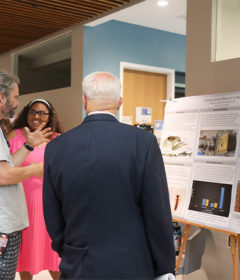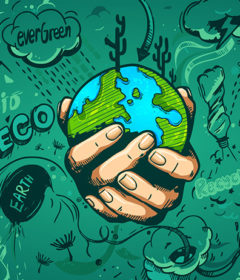Pollywogs, Be Gone!
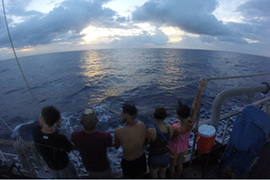
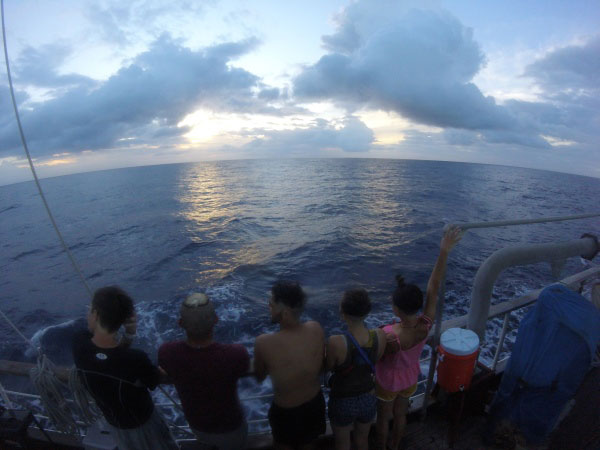
(A blog by John Pitts ’17, Environmental Science. Excerpted from SEA Semester®, published by the Sea Education Association, an internationally recognized leader in undergraduate ocean education based in Falmouth, Mass. Dated July 15, 2016.)
WE’VE CROSSED THE EQUATOR!
The latitude on our GPS hit all zeroes as Polaris slunk below our horizon this morning at approximately 0445. Once Neptune awoke in the afternoon, we were put on trial for our misgivings. We were all found guilty, but after a few tests and tributes we were honorably given Shellback status.
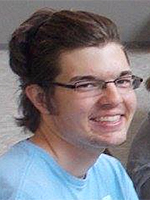
My favorite thing about life on the ocean so far: the visual embodiment of universal connectedness. At night, infinite numbers of worlds can be seen flickering overhead and floating underfoot. The waves rolling into one another serve as a reminder that nothing comes into existence without the constant, minute change of everything around it. I’m thinking of each of you and look forward to swapping stories of our adventures across the world.
In a class discussion on Monday, I said that I feel like a Portuguese man-of-war: pretty powerful on my own but still reliant on the rest of my colony to handle everything that needs to be done. So I will let their posts cover the goings-on of the ship.
We are also on track to reach our destination, the Phoenix Islands Protected Area, sometime later tonight, so I will use this post to talk a little bit about the nation of Kiribati (pronounced keer-e-bas), whose preservation of the area has allowed us to embark on this once-in-a-lifetime opportunity.
Considering that most of us had never heard of Kiribati prior to SEA Semester, I doubt you have either. They know about the U.S., though. While we will not meet many people from Kiribati on our journey — only a caretaker population of about 25 people live in the Phoenix group that comprise eight of the nation’s 33 islands — we do have an I-Kiribati observer, Kore, accompanying us.
Unfortunately, the goal for most I-Kiribati is to leave their home. Their property, food and water security are threatened by rising sea and rising population. The largest economic input for the islands is selling tuna fishing licenses to larger nations, as most don’t have the equipment necessary to fish tuna themselves. Despite this, they closed off fishing in nearly an eighth of their exclusive economic zone to create PIPA (Phoenix Islands Protected Area) and protect some of the world’s most pristine coral habitats, which will serve as a baseline for examining reef health across the globe. In a culture where water is common property and refusing help to someone in need is taboo, it is hardly surprising that they would give such a gift to the world.
It is time for us to start giving back to nations like Kiribati. It starts by admitting that we as a planet are facing a new era. It doesn’t matter if humans have changed the climate or not, it is changing. It always has. We must change with it. If the United States is going to be an example for the rest of the world, let us be a positive one.
John Pitts ’17
Note: In July, 23 undergraduates from diverse U.S. colleges and universities (including Pitts) embarked to gather data on the health of the Phoenix Islands Protected Area’s coral reef ecosystem and to recommend policy implementations. They were accompanied by SEA faculty, scientists from Woods Hole Oceanographic Institution and research divers from the New England Aquarium.


